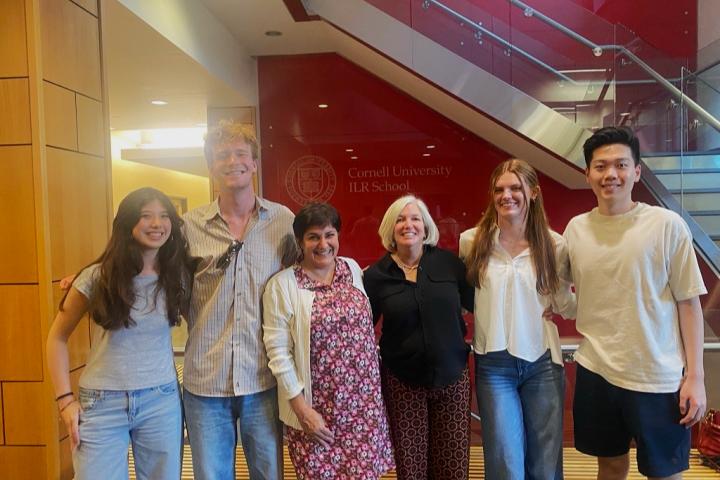
Soo In Kim MILR '16
Student Researcher at the Institute for Compensation Studies
Interest: TSR (Total Shareholder Return) and Superstar Pay
"Working as a student research assistant at the Institute for Compensation Studies was one of the most rewarding experiences I had at Cornell. With 2 years of work experience in corporate HR prior to joining the MILR program, my personal interest in being part of a research project was to enhance my understanding of compensation in academic research and literature. It was a great learning opportunity as I was able to interact with key faculty members and researchers in the area of compensation, as well as to complement my previous knowledge and practices with theoretical findings."
Student Research Brief - Soo In Kim, MILR ‘16
Research Question:
This project attempts to understand the role of top executive compensation packages based on total shareholder return on firm performance. In doing so, it aims to assess the claims that such measures can incentivize improved firm performance.
Project Summary:
In recent years, Total Shareholder Return (TSR) target metrics have been widely embedded into top-executive compensation plans in alignment with shareholders’ interests. However, there has been limited scholarly interest in the relationship between TSR metrics and firm performance, especially in the field of executive compensation. A research brief, “TSR, Executive Compensation, and Firm Performance”, has been prepared by the Institute for Compensation Studies in an attempt to address the gap in academia, examining the inclusion of TSR target metrics into top executives long-term incentive plans.
My primary goal for the project was to explore academic literature around the relationship of TSR-based structure and firm performance and to develop future research questions on TSR plans and other performance metrics in executive compensation. I furthered my research to better understand the elements of executive pay that impact firm’s future performance and create value for shareholders in a broader scope.
Role as a student research assistant:
Throughout the academic year, I conducted extensive literature reviews on TSR plans, executive compensation and firm performance in the capacity of a student research assistant. I reviewed journal articles, news articles, and consulting firms’ reports to gather information and better understand TSR plans (such as absolute and relative TSR), the link between executive compensation and productivity and companies’ differentiated approaches on executive compensation strategy relative to their business structure and strategy.
One interesting article I found was the impact of firm strategy on performance measures used in executive compensation, by Steven Balsam, Guy D. Fernando, Arindam Tripathy, which demonstrated the relationship between firm strategy and the use of performance measures in executive compensation. Following the theoretical framework and methodology suggested in the article, I collected company financial variables from companies’ income statements in addition to our original data, utilizing multiple data sources such as Compustat and Capital IQ. The compiled data was used for analysis to identify the differences in companies’ executive compensation plans depending on their business strategies.
Key Takeaways:
As a student research assistant at the Institute for Compensation Studies, I had the opportunity to work in a collaborative environment with key faculty members and researchers from various disciplinary, backgrounds, and interests. The exposure to extensive research and literature greatly enhanced my understanding of executive compensation, which was one of my major areas of interest as a future HR professional. It was a meaningful experience as I was able to apply the theoretical framework from the research to real business environment, while complementing practical findings.


